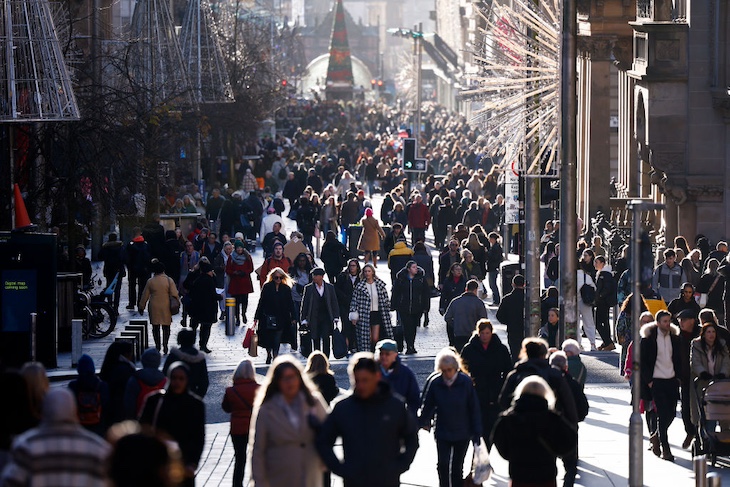Until a few weeks ago it seemed as if the government had inherited if not a golden economic legacy then an improving economic picture. But this morning’s figures for retail sales show just how faltering the economy is. During October the volume of retail sales fell by 0.7 per cent. Worst-affected was textile and clothing sales, which plunged by 3.1 per cent. Online retail suffered along with physical stores. Not only that, the figures for September were revised downwards from 0.3 to 0.1 per cent growth.
Comparing year on year, sales volumes were still up 2.4 per cent. Sales in the three months to October were also up, by 0.8 per cent compared with the previous quarter. They are a more reliable guide to what is happening on the High Street as the single monthly figure can be affected by the number of weekends which happen to fall within a month – and also, in this case, with school half-term which this year fell outside the period for which the figures were calculated.
Nevertheless, October’s figures should have Rachel Reeves wondering: was it really such a good idea to trail so much of her Budget and, worse, float possibilities of tax rises which she did not, in the end, deliver? The deliberate Budget leaks may have helped manage expectations – and upset the Speaker of the Commons, who gave Reeves a dressing down. But they also created a sense of fear. If people reacted by putting off planned purchases it would not be a surprise.
This week’s rise in inflation will not help, either. Nor will the rise in employers’ National Insurance Contributions, which Deutsche Bank estimated this week could cost 100,000 jobs. Reeves may think that she has protected the income of working people, but the Budget was in effect a trade-off: it put more money into the pay packets of people on the National Living Wage, but at the cost of eventually removing a pay packet from some people altogether. The increase in government borrowing is also forcing up future expectations of interest rates, however Keir Starmer might have sought to deny it this week.
But to be fair to the government, inflation was always expected to rise towards the end of 2024. That will have been one factor in Rishi Sunak’s decision to call an election in July rather than wait until the autumn. So, too, was the fear that more homebuyers would start to come off fixed rate mortgages and suffer a shock as they realised the era of ultra-low interest rates is over.
Looking at the economic data now it looks as if October might have been the sweet spot, when the economic outlook was the brightest. November – which was touted as the most likely date for a general election – looked a bit less bright. How much of the deterioration in confidence – shown in retail sales and other indicators such as UK share prices – is down to the present government and how much is down to things which would have happened anyway is impossible to tell.







Comments